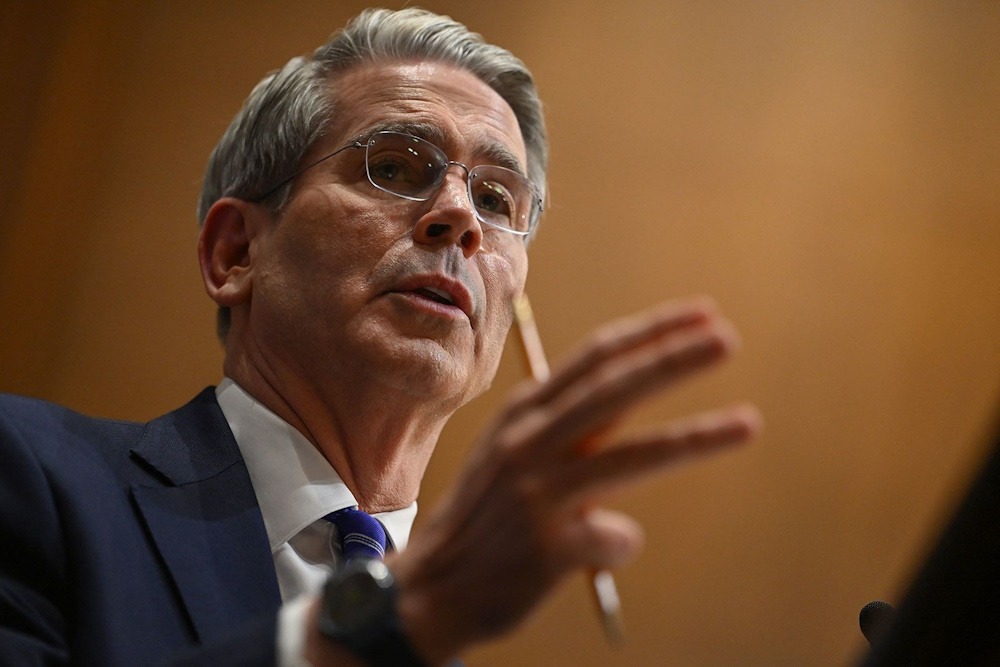United States Treasury Secretary Scott Bessent stated in an interview that the United States intends to provide Argentina with a currency swap, but will not inject funds into the country. During an interview, he stated: “As far as what the US is doing, just to be clear, we are giving them a swap line, we are not putting money into Argentina.” Last week, Bessent announced online that the US was “ready” to purchase Argentine bonds, “prepared to deliver significant stand-by credit” through the Exchange Stabilization Fund, and was negotiating a US$20 billion swap line. The action was broadly perceived as a form of financial rescue. At the time of this writing, no funds have been disbursed.
In Argentina, the peso experienced a temporary appreciation and a reduction in country risk following his announcement; however, the opposition urged that the agreement be presented to Congress and inquired about the conditions associated with it. Bessent encountered backlash at home from supporters who believed that engaging in a substantial deal with a foreign government undermined the Trump administration’s proclaimed “America First” policy. Additionally, Democrats criticized the administration for its reductions in acute crisis relief efforts and other essential support provided through organizations like USAID. The remarks from the Treasury Secretary seem intended to underscore the distinction between a credit line and conventional aid expenditures. Milei’s Argentina stands as a beacon. Bessent attributed the missed opportunity to the Obama administration, noting that it failed to align South American governments. He remarked, “Argentina is a beacon down there and there’s the chance for many other countries to come along, Bolivia, Ecuador, after the elections.” What is undesirable are these unsuccessful economic models; Argentina has experienced a century of decline, and President Milei is challenging historical trends while performing admirably. It is highly likely that his party will perform favorably in the upcoming elections this month.
Bessent also wrote that he is planning to meet with Argentine Economy Minister Luis Caputo and his team in Washington, D.C. in the coming days to “meaningfully advance our discussions in-person regarding options for delivering financial support.” He noted that the two had engaged in a “very positive” phone call on Wednesday. He stated that he had “emphasized the importance of the success of President Milei’s economic policies for the people of Argentina, for the region, and for the G7” to his fellow finance ministers in the G7 bloc, which comprises the world’s most powerful economies, on Wednesday. “The U.S. Treasury is fully prepared to do what is necessary, and we will continue to watch developments closely.” Argentine bonds experienced a temporary rally following Bessent’s post, but subsequently declined again after the interview.
In the interview, Bessent articulated that backing Argentina aligned with U.S. interests in the region. “What we’re doing is maintaining a US strategic interest in the Western Hemisphere,” he stated during the interviews. “America First does not imply America Alone.” In the context of a failed state in South America, exemplified by Venezuela, there is an imperative to monitor and dismantle cartel operations at sea, underscoring the necessity of avoiding the emergence of another failed state. One might find it pertinent to consider the implications of the US’s Venezuela strategy, as it has the potential to create significant effects throughout the region.
The United States has conducted operations resulting in the destruction of vessels off the coast of Venezuela in recent weeks, which it characterizes as targeted actions against cartel ships. Venezuelan authorities have refuted claims that the vessels were transporting gang affiliates or narcotics traffickers, whereas a woman recounted to the New York Times that her spouse, a fisherman, was among those killed in the assaults. Argentine President Javier Milei is scheduled to visit the White House for a meeting with Trump on October 14, subsequent to their encounter at the United Nations General Assembly.

